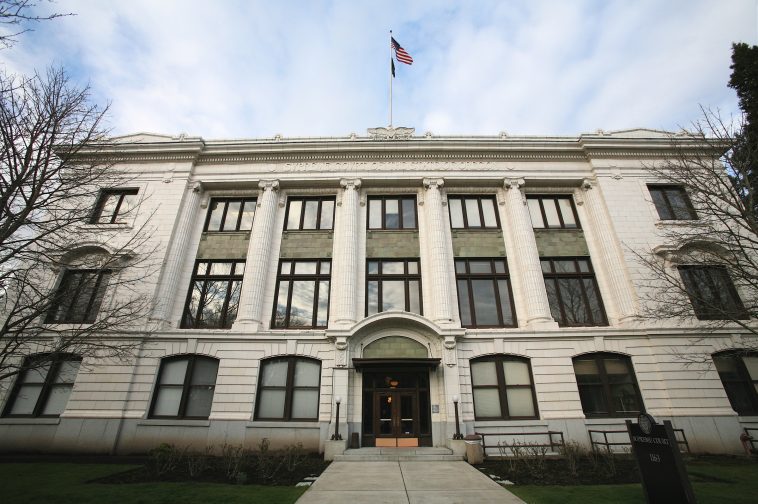The Oregon Supreme Court decided not to entertain a lawsuit on Friday, aimed at barring ex-President Donald Trump from the state’s primary and general elections in 2024. A group of five citiens from Oregon had initiated the legal action, with the intention of seeing Trump ruled ineligible for inclusion on the state’s ballot. Their legal argument was founded on the provisions of the 14th Amendment’s insurrection clause. These actions in Oregon were reflective of a broader climate of similar challenges confronting Trump’s potential candidacy across several states.
Parallel events unfolded in Colorado, with the state’s top court ruling last month to exclude Trump from the electoral list. Unsurprisingly, this judgement was rapidly countered with an appeal from Trump’s side. In recent developments, the US Supreme Court demonstrated willingness to take up the appeal against Colorado’s decision. The ruling from the country’s highest court could have fascinating domestic implications.
In refusing the Oregon lawsuit, Chief Justice Meagan Flynn hinted at the unfolding events in Colorado. The Statesman Journal reported that Flynn had left an opportunity for the case against Trump’s eligibility in the Oregon election to be reintroduced, the outcome hinging on the verdict from the U.S Supreme Court concerning the Colorado situation. The connection between these respective legal battles could form a decisive narrative in the lead up to the 2024 elections.
Novemeber bore witness to comments from Oregon’s Secretary of State, LaVonne Griffin-Valade. As a member of the Democratic party, she offered interesting insight into the autonomous powers of her role, stating that she lacked the authority to dismiss Trump’s name from the ballot. Contrarily, this view was not shared by Maine’s Secretary of State, Shenna Bellows.
Bellows, another Democrat, reached a different conclusion in the parallel examination within her state. In her announcement last month, she declared Trump ineligible for position on the state’s ballot. The divergent conclusions from these two state officials provide an excellent case study, illuminating the varying interpretations and applications of law across different regions.
An interesting factor to consider is that the Supreme Court’s final ruling on the Colorado case could substantially impact other states and shape the overall political landscape ahead of the 2024 elections. As it is clear, the court’s decision won’t just affect Colorado; other constituencies are watching closely as well. Particularly, certain groups in Illinois and Massachusetts have expressed similar intentions to prevent Trump’s name from appearing on their ballots.
According to the timeline, oral proceedings in the Supreme Court are set to commence on February 8th. This date arrives not long before the presidential primaries commence in several states, including Colorado, Maine, Massachusetts, and Illinois. These developments seem to be converging into a major watershed moment for American politics, where the potential inclusion or exclusion of a high-profile candidate could significantly shape voter perceptions.
To close, it seems certain that for now Trump will remain an eligible candidate within Colorado, barring any adverse ruling from the Supreme Court. Collectively, these events could have sweeping implications not only for Trump’s political future but also for the practical application of constitutional clauses throughout the country. So while the legal offensives and defensives continue, the 2024 contest is unequivocally becoming a hotbed of fascinating narratives.
Order Donald Trump Mug Shot Glass
Watch RNN on YouTube!


